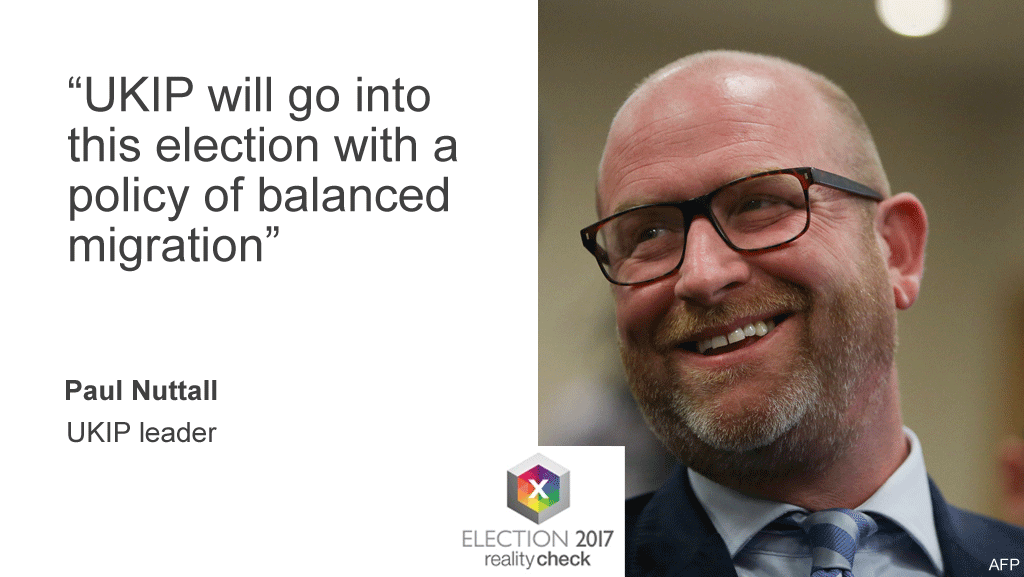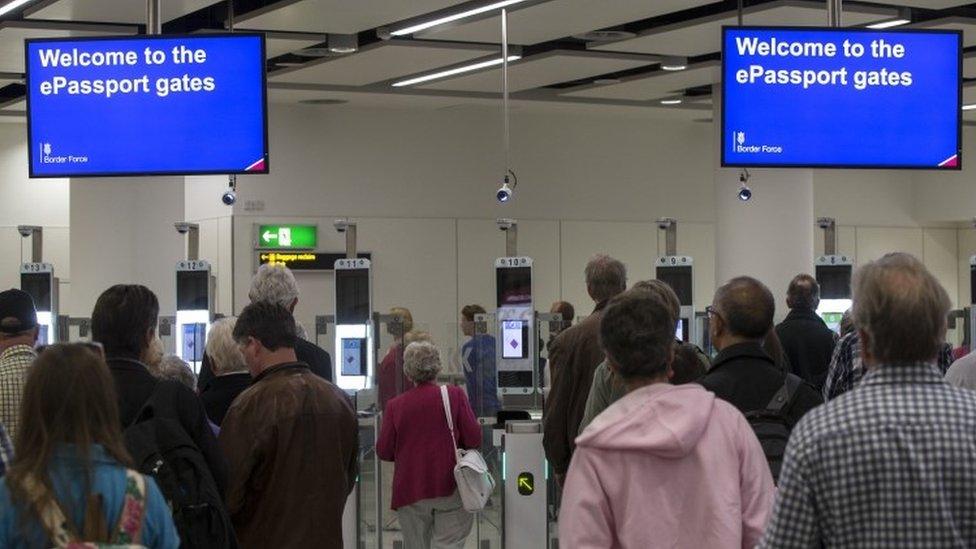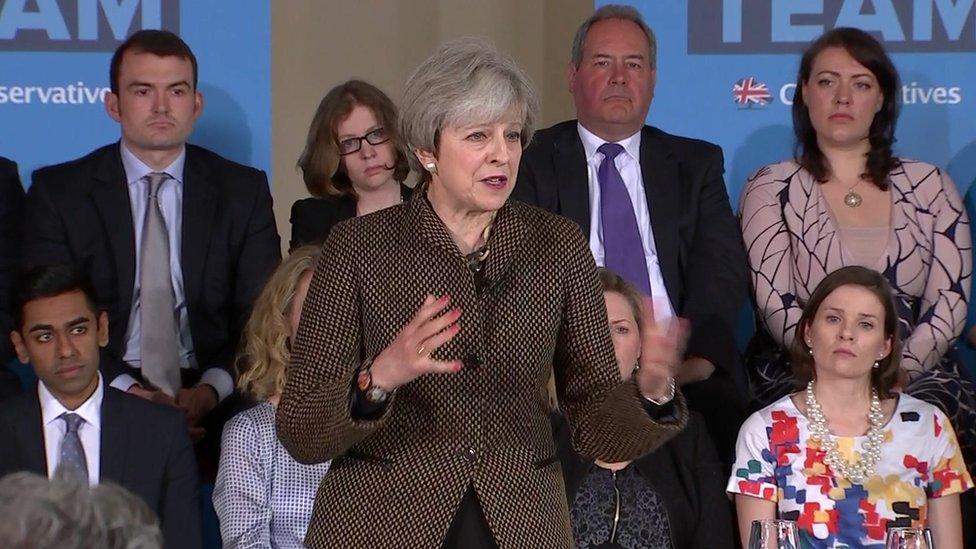General election 2017: Could UKIP's immigration policy work?
- Published

The claim: UKIP says it will reduce net migration into the UK to zero by introducing an "Australian-style points-based system".
Reality Check verdict: UKIP has set itself a very ambitious target - but, depending on the strictness of the criteria, it could be achieved. Australia's system has led to a 3% net increase in the past year.
The UKIP leader, Paul Nuttall, says his party would bring net migration down to zero.
This would mean the number of people arriving into the country would be about the same as the number leaving.
Mr Nuttall says one way of achieving this would be to introduce an Australian-style points-based system.
Australia's points system was introduced in 1989.
Applicants score points for youth, qualifications, and English-speaking ability if applying for a skilled job.
Unless they are being sponsored by an employer, they must also be applying to work in one of the trades or professions set out in a list by the Australian government.
And the numbers for each of these trades and professions are capped.
Last year, Australia offered up to 190,000 permanent migration places, external and net migration reached 182,165, an increase of 3% on the previous year, external.
The UK already has a points system for non-EU migrants seeking skilled employment in the UK.
It was introduced by the Labour Party, under Gordon Brown, back in 2008 and caps the total number on an annual basis at 20,700.
There are other routes for coming to the UK that are not subject to an annual cap, such as students arriving to study and migrants who move for family reasons.
Under UKIP's plans, unskilled and low-skilled labour would be banned for five years while skilled workers and students would need visas based on the points system.
UKIP want 'one in, one out' migration
Presently, EU migrants are allowed to work in the UK under the principle of freedom of movement.
But once the UK leaves the EU and if free movement no longer applies, then its citizens would be subjected to the same rules as non-EU migrants.
Depending on the strictness of the criteria, there is no reason in theory why the numbers could not fall to the levels UKIP wants.
UKIP says it wants to implement its policy over the next five years, which would represent a very ambitious target given the current numbers.
In the last set of official statistics, external, produced by the Office of National Statistics, immigration was estimated to be 596,000 in the year up to September 2016 - made up of 268,000 EU citizens, 257,000 non-EU citizens and 71,000 British citizens.
Some 323,000 people were thought to have left the UK, meaning that annual net migration stands at 273,000.



- Published8 May 2017

- Published8 May 2017
